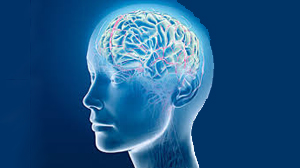
drgauravgopal@gmail.com | gopal.neuropsychiatry@gmail.com

drgauravgopal@gmail.com | gopal.neuropsychiatry@gmail.com
Dr. MANISHA GOPAL
M.B.B.S, M.D (Psychiatry)
Ex. PGI (Rohtak)
Ex. PGIMER (Chandigarh)

We, the Neuropsychiatry team of Gopal Hospital believe in an all- round treatment approach. We try to use minimum medicines, with least side effects. Our focus is also on teaching -lifestyle mangement/ dietary modification/ various relaxation techniques to the patients in order to provide a wholesome and early recovery.
Dr. Manisha Gopal is the Consultant Psychiatrist at Gopal Hospital, Mohali . She is in the field of psychiatry for more than a decade . She did her specialisation from PGIMS Rohtak and later joined prestigious PGIMER Chandigarh for her Senior Residency. She is an expert in treating all kinds of mental illnesses. In PGI Chandigarh, she had worked in general opd as well as deaddiction department and had managed all kinds of addiction related patients.
She believes in giving a holistic treatment. Along with medicines, she encourages her patients for understanding their illness and help them in making lifestyle changes for an early recovery.
She is a life member of Indian Psychiatrist Society, Tricity Psychiatrist Society, an Executive member of Indian Medical Association, Mohali.
 Stress related disorders
Stress related disorders
 Depression
Depression
 Anxiety
Anxiety
 Bipolar disorder
Bipolar disorder
 Schizophrenia/psychosis
Schizophrenia/psychosis
 Headaches
Headaches
 Epilepsy
Epilepsy
 Marital problems
Marital problems
 Childhood disorders
Childhood disorders
 memory problems
memory problems
 Old age dementia
Old age dementia
 Sleep problems
Sleep problems
 Psychological testing- IQ; Rorschach; personality testing, etc
Psychological testing- IQ; Rorschach; personality testing, etc
 Therapies
Therapies
Relaxation procedures- scientifically proven to help patients in various psychiatric disorders
Mental illness is a disease that causes mild to severe disturbances in thoughts and/ or behaviour, resulting in an inability to cope with life’s ordinary demands. Some common mental disorders are- depression, bipolar disorder, dementia, schizophrenia, anxiety disorders, eating disorders, addictive behaviours.
It is a myth that mental disorders are rare and happen to someone else. Infact mental disorders are widespread and common. According to National mental health survey of India: every sixth Indian needs mental health help. All age groups are affected but is more common between 30 to 49 years and above 60 years of age.
Anyone can develop a mental illness.
 It can be due to stressful event or a series of stressful events in life.
It can be due to stressful event or a series of stressful events in life. Genetic factors can also play a role in leading to mental illness.
Genetic factors can also play a role in leading to mental illness.  Biochemical disturbances in the brain also lead to a mental illness.
Biochemical disturbances in the brain also lead to a mental illness. The above factors may associate together and can cause a mental illness.
The above factors may associate together and can cause a mental illness. One should pay attention to the sudden changes in the thoughts and behaviour of a person. Some common symptoms which are seen in the mental illness are (they should not be due to recent substance abuse or any medical condition):-
 Confused thinking
Confused thinking  Prolonged sadness\ irritability
Prolonged sadness\ irritability Feeling of extreme highs and lows
Feeling of extreme highs and lows Excessive fears and worries
Excessive fears and worries Social withdrawal
Social withdrawal Dramatic changes in person’s sleeping/ eating habits
Dramatic changes in person’s sleeping/ eating habits Increase anger
Increase anger  Strange thoughts {suspiciousness}
Strange thoughts {suspiciousness}  Seeing /hearing things that are not there
Seeing /hearing things that are not there  Growing inability to cope with daily activities of life
Growing inability to cope with daily activities of life  Suicidal thoughts
Suicidal thoughts  Numerous unexplained physical ailments
Numerous unexplained physical ailments  Substance abuse
Substance abuseSome symptoms that are common in older children and pre adolecents are:-
 Substance abuse
Substance abuse  Inability to cope with daily activities of life
Inability to cope with daily activities of life  Changes in the sleeping or eating patterns
Changes in the sleeping or eating patterns  Excessive complains of physical ailments
Excessive complains of physical ailments  Changes in the ability to manage responsibility at home or at school
Changes in the ability to manage responsibility at home or at school  Intense fear
Intense fear  Increase anger
Increase anger Signs and symptoms of mental illness in younger children :-
 Changes in school performance
Changes in school performance  Poor grades
Poor grades Changes in the sleeping and eating habits
Changes in the sleeping and eating habits  Excessive worries or anxiety ~like refusal to go to school or bed
Excessive worries or anxiety ~like refusal to go to school or bed  Hyper activity
Hyper activity  Persistent nightmares
Persistent nightmares  Persistent disobedience or aggression
Persistent disobedience or aggression  Frequent temper tantrums
Frequent temper tantrums On recognising a mental illness in someone, he or she must be encouraged to meet a Psychiatrist at the earliest. Most of the mental illnesses do not improve on their own and if left untreated it can worsen with time and can cause serious problems.
A friend or a family member is encouraged to accompany the patient to the Psychiatrist in initial few visits. The treatment differs from person to person. It can be in the form of medicines and/or talk therapy, lifestyle changes or the combination of all of the above.
Gopal Clinic @ 2014.All Rights Reseverd
Managed by: Webkrafts Solutions